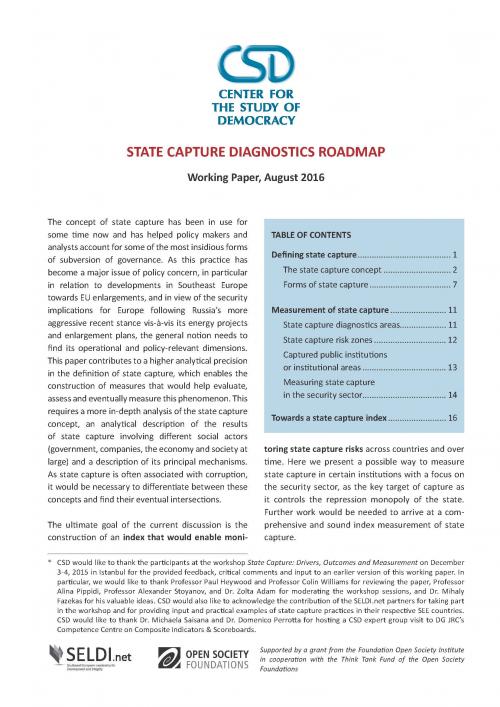
We kindly inform you that, as long as the subject affiliation of our 300.000+ articles is in progress, you might get unsufficient or no results on your third level or second level search. In this case, please broaden your search criteria.

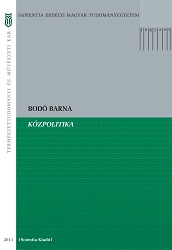
One of the most developing areas of political science in the 20th century is public policy. The accuracy of this claim lies in the fact that the findings of policy studies break the classic boundaries of political science, because it focuses its attention on social processes (programs, conceptions, strategies) which shape the future of the society. Moreover, public policy is common interest. This comes from the fact that the process of decision-making – similarly to every option which focuses on the future of mankind – is not a value-blind process; people need to take part in those processes which shape their future. Times are changing. The classic definition of public policy is valid – activities and non-activities which are conducted by governmental institutions in order to implement the objectives crystallized on the road to power of the participants –, however, beyond the classical model of political mandating through elections, there is a need for public participation as well: the formulation of signals, criticisms, expectations. Therefore, public policy can be understood as conscious action which is used by a group of actors in problem solving. This situation is challenging not only for those who are participating in it – target groups, policymakers, agenda setters –, but for political science as a whole as well. As a policy analyst once formulated it quite effectively, policy analysis is the practice of theory and the theory of practice (György Gajduschek). The objective of this book is to go through the most important topics of public policy and to organize them in concrete chapters. The administrative and public policy processes are analyzed from political perspective, thus we focus on the development and implementation of programs, the processes of decision-making and evaluation, which are linked to the function of the political system as a whole. In other words, our objective is to follow the process of how governments think and develop their action and program, to analyze their implementation and to unfold the related causalities and consequences. We plan to give a theoretical knowledge-base to the practical configuration and realization of public policies. Although this knowledge is specific, its importance rises from the interdisciplinarity of its tools. The book, its structure, approached topics and discussion-type (depth and theoretical tools), follows the structure of the academic course. From pedagogical point of view the inserted textboxes – concept descriptions, definitions and comments – are equally important, they present important insights on the discussed matter. The glossary – concept definition index – shares the same purpose as well.
More...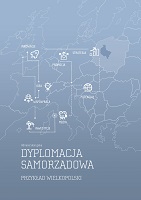
Wielkopolska region remains one of the most active in international contacts, with over 63% of local government bodies cooperating with foreign partners and another 19% planning to launch international cooperation in the near future. German local governments hold a special place among foreign partners, as nearly three-fourths of Wielkopolska’s local authorities cooperate with their German counterparts. The decline in the number of partners from Western Europe is accompanied by more intensive contacts with local governments from the neighboring countries and Hungary, and enhanced cooperation with Eastern Partnership and Asian countries, especially with China, is a likely prospect.
More...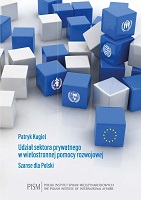
While multilateral development assistance offers vast business opportunities for European companies, Polish firms have so far been playing a marginal role on this market due in part to limited awareness of the existing opportunities. Hence the report describes the activities and procurement systems of the major international organisations: the European Union, the World Bank and the United Nations, offering case studies of countries that take active part in development projects outside Europe and providing recommendations for Polish firms on how to be more active and successful in this segment of the global market.
More...
Local government diplomacy is increasingly becoming a significant tool for local development and an instrument of foreign policy. This is among the conclusions of the PISM report “Dyplomacja samorządowa. Efektywność i perspektywy rozwoju” [Local Government Diplomacy: Effectiveness and Prospects], released in the “Year of Self-Government”, which commemorates the 25th anniversary of local government reform in the country. Polish democratic efforts on the local level and the ability to use European funds have become a form of export product. Local government professionalism generates pragmatism in foreign relations, corresponding to a decrease in the number of random contacts. Local governments in Poland withdraw from agreements that do not result in benefits. Such cooperation now must serve a particular purpose that may translate into concrete actions and, in many cases, is treated as a long-term investment. Modern local government can also support such important foreign policy goals as the planned reforms in Ukraine. How so? Find out in PISM’s latest publication.
More...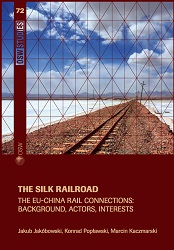
The report discusses the current state and future prospects of rail connections between China and the countries of the European Union. Special emphasis is placed on the role of Central Europe. It presents the goals and the policy adopted by the Chinese side in the process of building rail connections with European countries, compares the current and the planned transport corridors, offers an analysis of the economic potential of the China-Europe rail connections. It also discusses various business models of cooperation with China in rail transport. // The report has been drawn up based on the desk research and interviews with representatives of European and Chinese companies involved in developing rail connections, as well as interviews with Chinese analysts dealing with Belt and Road issues.
More...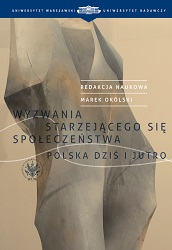
The authors present the challenges facing Polish society resulting from the aging of the population. They explore the experiences of other societies and apply these experiences to the specific demographic conditions as well as socio-economic and political determinants of contemporary Poland.
More...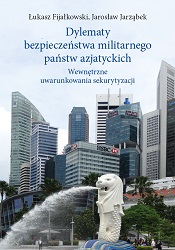
The publication aims to explain the dynamics of internal conditions of military security in Asia through the analysis of the case studies of four states: Indonesia, Iran, Jordan and Singapore. The subject of research is the security of these states examined with the use of the theory of securitization and an attempt to translate it into the realities of internal conditions of military security.
More...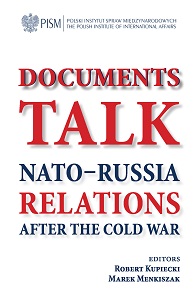
(...) regardless of the adopted perspective of an observer or analyst, and optimism/pessimism related to NATO-Russia relations, they will remain a key aspect of international security. This necessitates the search for “source knowledge” and “decoding” numerous stereotypes and simplifications that these relations have overgrown for the last quarter century. One must not forget the calculated and deliberate disinformation that Russia has been practising regarding its relations with the Alliance. It consistently uses the myth of “betrayal of the West”, blaming NATO nations for being the primary cause of the current state of NATO-Russia relations. It is not our task in this volume to explain the nature of these problems exhaustively, nor to discuss the structure of modern Russian political mythology. However, the significant dispersion of “first-hand” sources raises the bar of problems confronting researchers of NATO-Russia relations. Therefore, this volume attempts at gathering key open-source documents produced by both sides and arranging them into a representative whole to provide a better understanding of the “big picture” (...). The emerging picture of political thinking and policy justifications offers the power of beating back many stereotypical opinions (...)
More...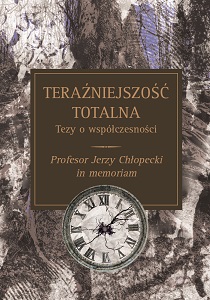
Book dedicated to the memory of prof. Jerzy Chłopecki, a sociologist and political scientist. Volume contains scientific texts, the authors of which refer to Chłopecki's theses concerning the world of media, politics and mechanisms of power, interpersonal relations, law, history and economics. It also includes previously unpublished texts by Chłopecki himself.
More...
The institution of a parliamentary investigative committee is presently known to the politicalsystems of most democratic states in the world, as it fulfils many important functions in civilsociety. This work is an attempt at answering the question whether the Sejm investigative committeesin Poland constitute an actual, real, and non-partisan instrument of parliamentary oversight,or are merely one of the elements of ad hoc partisan rivalry. Three essential aspects of thisissue have been analyzed: the circumstances of appointment, mechanisms of operation, and finalconclusions of the Sejm investigative committees, whose work was conducted during the periodof the Third Republic of Poland (between 2003 and 2018). It is also the intention of the authorto determine the validity and advisability of utilizing the institution of an investigative committeewithin Poland’s political system alongside other instruments of parliamentary oversight.
More...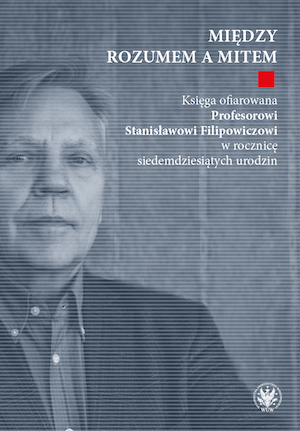
Księga ofiarowana Profesorowi Stanisławowi Filipowiczowi w rocznicę siedemdziesiątych urodzin
The book is a collection of articles dedicated to Professor Stanisław Filipowicz for his 70th birthday anniversary. The texts refer to his scientific achievements in political philosophy and the history of thought and political ideas.
More...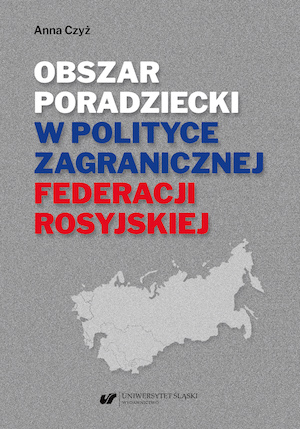
The publication refers to the place, importance and role of the post-Soviet area in the foreign policy of the Russian Federation after the collapse of the Soviet Union in 1991. This is an important and current topic, especially in the context of the ongoing war in Ukraine. The Russian Federation uses all possible instruments of influence to maintain control over the post-Soviet area, treated as the exclusive sphere of Russian influence and the priority direction of Russian foreign policy. The main goals of Russian foreign policy towards the so-called near-border include the political, economic and military integration of this area under the leadership of Russia.
More...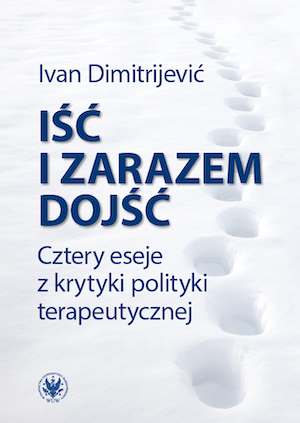
Modern political semantics is based, among others, on re-semantics of Aristotelian kinesis. All “-isms”, all parties, all ideologies are, following Koselleck, the notions of movement: they assume the mobilization of citizens towards goals that can be achieved in time, which results in the constant dialectics between stagnation and social mobility. How does kinetic politics influence a democratic system? How does the widespread activation of bodies and minds affect the mental state of individuals? Is there, following Lasch, a relation between mobility and narcissism? Has politics become a form of disease therapy? Is politics not one of the sources of disease? Or, perhaps, politics is about a certain praxis and not a movement?
More...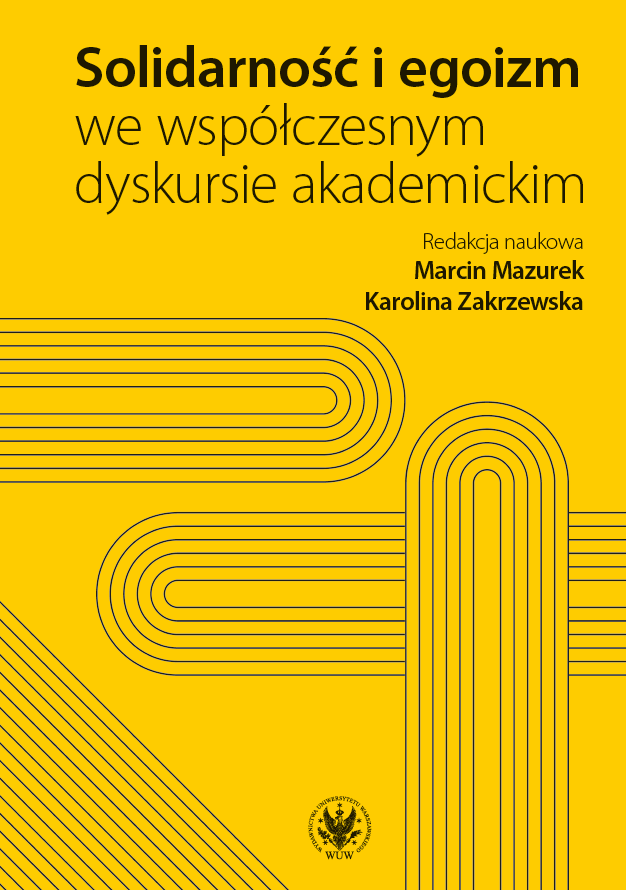
This multi-author monograph is a collection of eleven articles about current discourse on solidarity and egoism. The authors, representing different specialties, analyse the title phenomena from the ethical, social, economic and political perspective, focusing on the analysis of deep social changes in the modern world as well as modern and post-modern discourses which accompany them.
More...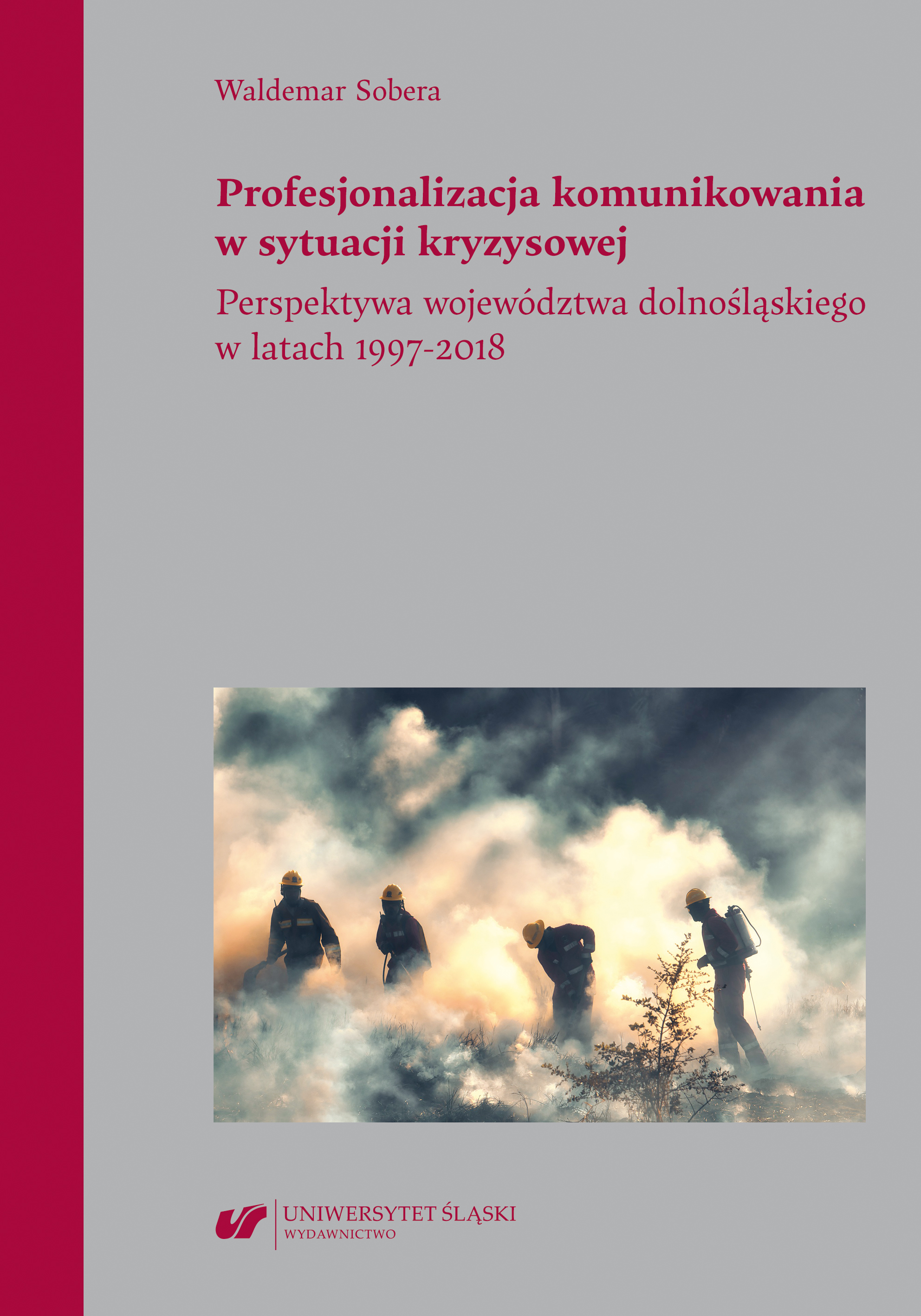
The book was dedicated to the mechanisms, standards, and relations between public ad-ministration, dispositional groups and media connected with the communication process during crisis situations, and to assessing their level of professionalization. The research was carried out in the Lower Silesian voivodeship in the years 1997 to 2018. Surveys, in-depth interviews and desk research were used to achieve the study's goals. The analysis allowed to make a complex characterization of communication in crisis situations and provide a recommendation that could increase the effectiveness of information transfer after its adaptation.
More...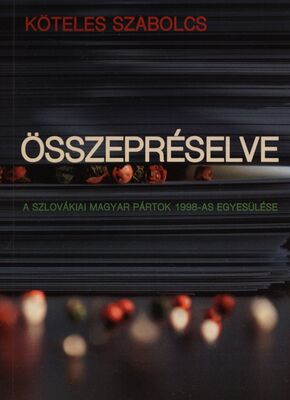
A szlovákiai magyar pártok 1998-as egyesülése
The author argues that the unification of the three Hungarian parties in Slovakia in 1998 was brought about by external pressure (the new autocratic electoral law): the parties would not have united on their own, and once the external pressure was removed, the agreement dissolved.
More...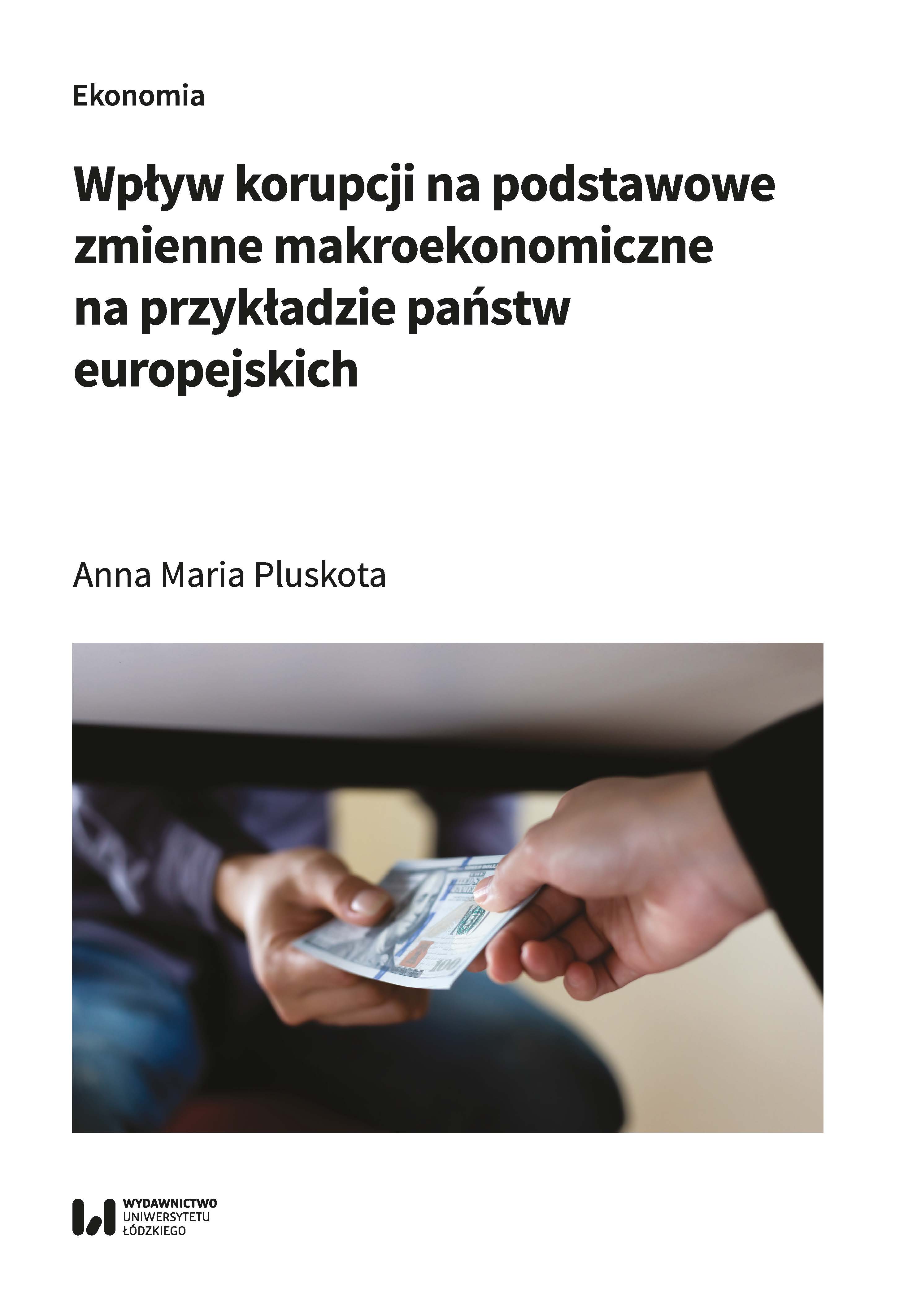
The paper discusses theories of the impact of bribery on selected macroeconomic quantities. The most important views on the impact of bribery on the economy are presented. Key arguments for both positive and negative effects of corruption on the economy were presented. The author also discussed the topic of the optimal level of bribery. The theoretical arguments for the impact of bribery on the economy were supported by a review of studies conducted on the impact of corruption on selected macroeconomic variables. The concept of non-linear effects of corruption on basic macroeconomic quantities can well reconcile the theoretical arguments postulating the negative impact of bribery on the economy and the possibility of positive effects of bribery on the economy. On the one hand, it is significant that controlling bribery promotes economic growth, encourages investment, attracts new technologies, and consequently leads to poverty reduction. On the other hand, it is a fact that the complete elimination of corruption is not possible, and theories about the possibility of positive effects in economic terms of corruption are reasonable. The dispute over whether bribery harms or supports the economy is perhaps the most significant dispute presented in the literature on the impact of corruption.
More...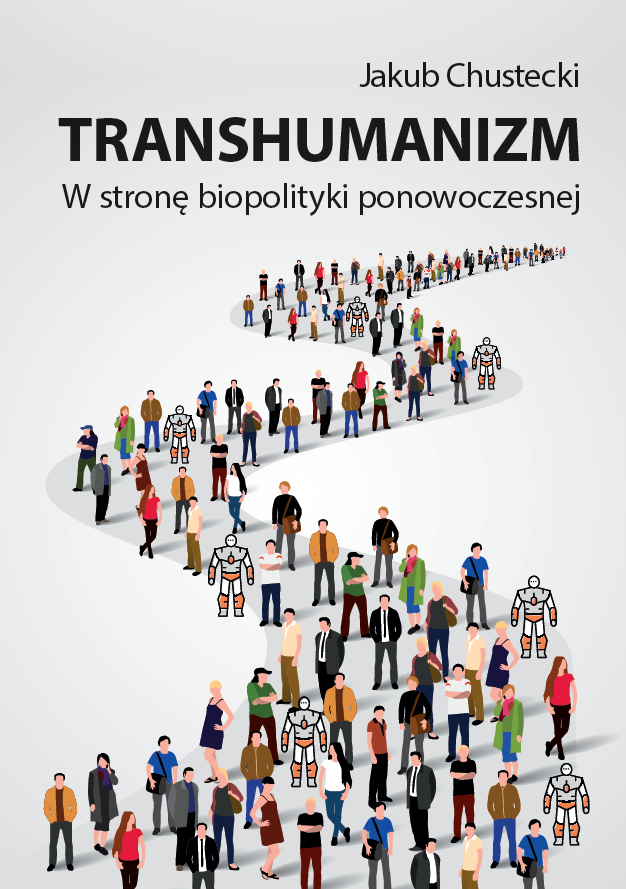
W stronę biopolityki ponowoczesnej
The publication shows definitional meanders of transhumanism and its various subsystems. It discusses its link with biopolitics, as well as the potential results associated with it. The author attempts to answer the question concerning social, political, axiological consequences of dynamic technological development and the ultimate constitution of the post-humanist order. He proposes a hypothesis that transhumanism will increasingly become an object of modern and postmodern biopolitics and thus, the effects of dynamic technological development should be examined in comparison with biopolitical interactions.
More...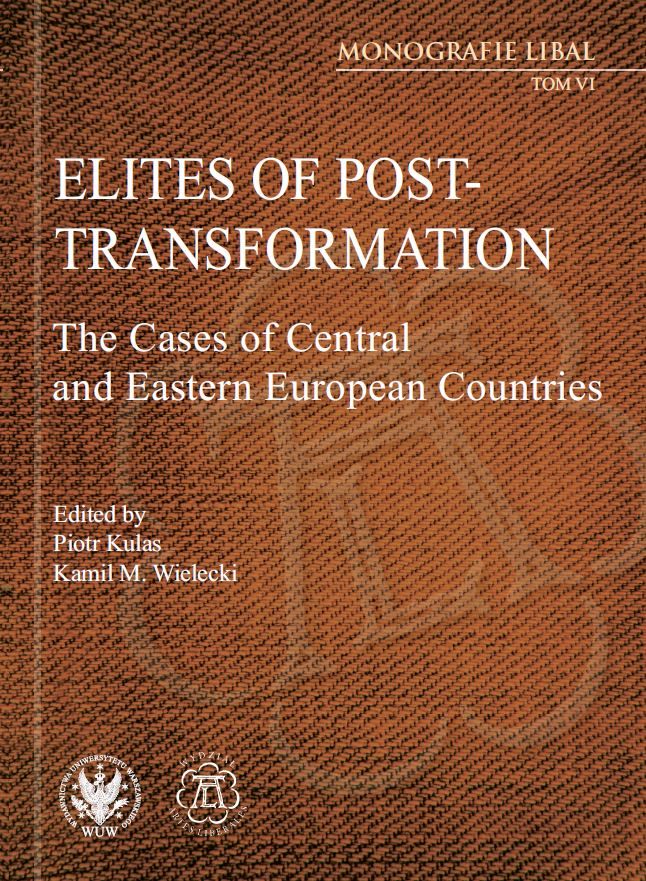
The Cases of Central and Eastern European Countries
The systemic transformation in Central and Eastern Europe brought about the emergence of consensual elites that ultimately favoured a consolidated democracy. Today, however, some countries are experiencing democratic backsliding, with the elites fragmented or even divided. The book presents several case studies of how elites across the region have been changing. They can be instrumental in both democratization and democratic backsliding. Illiberal elites claim to represent the will of the people, which in their view is true democracy. To understand the current state of democracy, it is necessary to examine the role of the elites in this process. It is also pertinent to address the question about the origins and characteristics of the contemporary elites that threaten liberal democracy and undermine the existing consensus.
More...